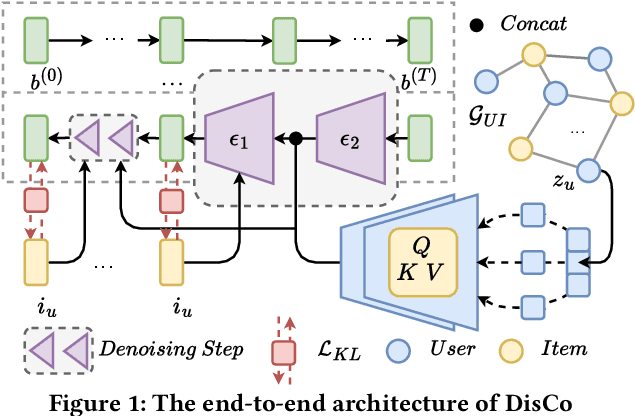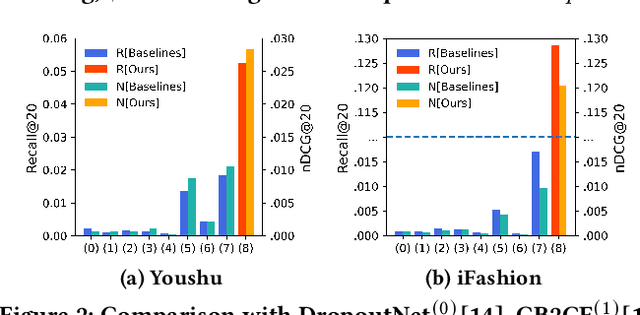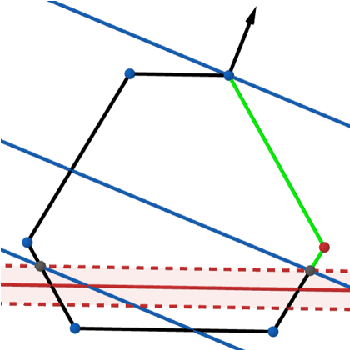Duc-Trong Le
Agentic Design Patterns: A System-Theoretic Framework
Jan 27, 2026Abstract:With the development of foundation model (FM), agentic AI systems are getting more attention, yet their inherent issues like hallucination and poor reasoning, coupled with the frequent ad-hoc nature of system design, lead to unreliable and brittle applications. Existing efforts to characterise agentic design patterns often lack a rigorous systems-theoretic foundation, resulting in high-level or convenience-based taxonomies that are difficult to implement. This paper addresses this gap by introducing a principled methodology for engineering robust AI agents. We propose two primary contributions: first, a novel system-theoretic framework that deconstructs an agentic AI system into five core, interacting functional subsystems: Reasoning & World Model, Perception & Grounding, Action Execution, Learning & Adaptation, and Inter-Agent Communication. Second, derived from this architecture and directly mapped to a comprehensive taxonomy of agentic challenges, we present a collection of 12 agentic design patterns. These patterns - categorised as Foundational, Cognitive & Decisional, Execution & Interaction, and Adaptive & Learning - offer reusable, structural solutions to recurring problems in agent design. The utility of the framework is demonstrated by a case study on the ReAct framework, showing how the proposed patterns can rectify systemic architectural deficiencies. This work provides a foundational language and a structured methodology to standardise agentic design communication among researchers and engineers, leading to more modular, understandable, and reliable autonomous systems.
CLEAR: Causal Learning Framework For Robust Histopathology Tumor Detection Under Out-Of-Distribution Shifts
Oct 16, 2025Abstract:Domain shift in histopathology, often caused by differences in acquisition processes or data sources, poses a major challenge to the generalization ability of deep learning models. Existing methods primarily rely on modeling statistical correlations by aligning feature distributions or introducing statistical variation, yet they often overlook causal relationships. In this work, we propose a novel causal-inference-based framework that leverages semantic features while mitigating the impact of confounders. Our method implements the front-door principle by designing transformation strategies that explicitly incorporate mediators and observed tissue slides. We validate our method on the CAMELYON17 dataset and a private histopathology dataset, demonstrating consistent performance gains across unseen domains. As a result, our approach achieved up to a 7% improvement in both the CAMELYON17 dataset and the private histopathology dataset, outperforming existing baselines. These results highlight the potential of causal inference as a powerful tool for addressing domain shift in histopathology image analysis.
Multi-modal Adaptive Mixture of Experts for Cold-start Recommendation
Aug 11, 2025



Abstract:Recommendation systems have faced significant challenges in cold-start scenarios, where new items with a limited history of interaction need to be effectively recommended to users. Though multimodal data (e.g., images, text, audio, etc.) offer rich information to address this issue, existing approaches often employ simplistic integration methods such as concatenation, average pooling, or fixed weighting schemes, which fail to capture the complex relationships between modalities. Our study proposes a novel Mixture of Experts (MoE) framework for multimodal cold-start recommendation, named MAMEX, which dynamically leverages latent representation from different modalities. MAMEX utilizes modality-specific expert networks and introduces a learnable gating mechanism that adaptively weights the contribution of each modality based on its content characteristics. This approach enables MAMEX to emphasize the most informative modalities for each item while maintaining robustness when certain modalities are less relevant or missing. Extensive experiments on benchmark datasets show that MAMEX outperforms state-of-the-art methods in cold-start scenarios, with superior accuracy and adaptability. For reproducibility, the code has been made available on Github https://github.com/L2R-UET/MAMEX.
Personalized Diffusion Model Reshapes Cold-Start Bundle Recommendation
May 20, 2025



Abstract:Bundle recommendation aims to recommend a set of items to each user. However, the sparser interactions between users and bundles raise a big challenge, especially in cold-start scenarios. Traditional collaborative filtering methods do not work well for this kind of problem because these models rely on interactions to update the latent embedding, which is hard to work in a cold-start setting. We propose a new approach (DisCo), which relies on a personalized Diffusion backbone, enhanced by disentangled aspects for the user's interest, to generate a bundle in distribution space for each user to tackle the cold-start challenge. During the training phase, DisCo adjusts an additional objective loss term to avoid bias, a prevalent issue while using the generative model for top-$K$ recommendation purposes. Our empirical experiments show that DisCo outperforms five comparative baselines by a large margin on three real-world datasets. Thereby, this study devises a promising framework and essential viewpoints in cold-start recommendation. Our materials for reproducibility are available at: https://github.com/bt-nghia/DisCo.
BRIDGE: Bundle Recommendation via Instruction-Driven Generation
Dec 24, 2024Abstract:Bundle recommendation aims to suggest a set of interconnected items to users. However, diverse interaction types and sparse interaction matrices often pose challenges for previous approaches in accurately predicting user-bundle adoptions. Inspired by the distant supervision strategy and generative paradigm, we propose BRIDGE, a novel framework for bundle recommendation. It consists of two main components namely the correlation-based item clustering and the pseudo bundle generation modules. Inspired by the distant supervision approach, the former is to generate more auxiliary information, e.g., instructive item clusters, for training without using external data. This information is subsequently aggregated with collaborative signals from user historical interactions to create pseudo `ideal' bundles. This capability allows BRIDGE to explore all aspects of bundles, rather than being limited to existing real-world bundles. It effectively bridging the gap between user imagination and predefined bundles, hence improving the bundle recommendation performance. Experimental results validate the superiority of our models over state-of-the-art ranking-based methods across five benchmark datasets.
Bundle Recommendation with Item-level Causation-enhanced Multi-view Learning
Aug 13, 2024Abstract:Bundle recommendation aims to enhance business profitability and user convenience by suggesting a set of interconnected items. In real-world scenarios, leveraging the impact of asymmetric item affiliations is crucial for effective bundle modeling and understanding user preferences. To address this, we present BunCa, a novel bundle recommendation approach employing item-level causation-enhanced multi-view learning. BunCa provides comprehensive representations of users and bundles through two views: the Coherent View, leveraging the Multi-Prospect Causation Network for causation-sensitive relations among items, and the Cohesive View, employing LightGCN for information propagation among users and bundles. Modeling user preferences and bundle construction combined from both views ensures rigorous cohesion in direct user-bundle interactions through the Cohesive View and captures explicit intents through the Coherent View. Simultaneously, the integration of concrete and discrete contrastive learning optimizes the consistency and self-discrimination of multi-view representations. Extensive experiments with BunCa on three benchmark datasets demonstrate the effectiveness of this novel research and validate our hypothesis.
Curriculum Learning Meets Directed Acyclic Graph for Multimodal Emotion Recognition
Mar 08, 2024



Abstract:Emotion recognition in conversation (ERC) is a crucial task in natural language processing and affective computing. This paper proposes MultiDAG+CL, a novel approach for Multimodal Emotion Recognition in Conversation (ERC) that employs Directed Acyclic Graph (DAG) to integrate textual, acoustic, and visual features within a unified framework. The model is enhanced by Curriculum Learning (CL) to address challenges related to emotional shifts and data imbalance. Curriculum learning facilitates the learning process by gradually presenting training samples in a meaningful order, thereby improving the model's performance in handling emotional variations and data imbalance. Experimental results on the IEMOCAP and MELD datasets demonstrate that the MultiDAG+CL models outperform baseline models. We release the code for MultiDAG+CL and experiments: https://github.com/vanntc711/MultiDAG-CL
Towards Efficient Pareto-optimal Utility-Fairness between Groups in Repeated Rankings
Feb 22, 2024



Abstract:In this paper, we tackle the problem of computing a sequence of rankings with the guarantee of the Pareto-optimal balance between (1) maximizing the utility of the consumers and (2) minimizing unfairness between producers of the items. Such a multi-objective optimization problem is typically solved using a combination of a scalarization method and linear programming on bi-stochastic matrices, representing the distribution of possible rankings of items. However, the above-mentioned approach relies on Birkhoff-von Neumann (BvN) decomposition, of which the computational complexity is $\mathcal{O}(n^5)$ with $n$ being the number of items, making it impractical for large-scale systems. To address this drawback, we introduce a novel approach to the above problem by using the Expohedron - a permutahedron whose points represent all achievable exposures of items. On the Expohedron, we profile the Pareto curve which captures the trade-off between group fairness and user utility by identifying a finite number of Pareto optimal solutions. We further propose an efficient method by relaxing our optimization problem on the Expohedron's circumscribed $n$-sphere, which significantly improve the running time. Moreover, the approximate Pareto curve is asymptotically close to the real Pareto optimal curve as the number of substantial solutions increases. Our methods are applicable with different ranking merits that are non-decreasing functions of item relevance. The effectiveness of our methods are validated through experiments on both synthetic and real-world datasets.
Conversation Understanding using Relational Temporal Graph Neural Networks with Auxiliary Cross-Modality Interaction
Nov 08, 2023



Abstract:Emotion recognition is a crucial task for human conversation understanding. It becomes more challenging with the notion of multimodal data, e.g., language, voice, and facial expressions. As a typical solution, the global- and the local context information are exploited to predict the emotional label for every single sentence, i.e., utterance, in the dialogue. Specifically, the global representation could be captured via modeling of cross-modal interactions at the conversation level. The local one is often inferred using the temporal information of speakers or emotional shifts, which neglects vital factors at the utterance level. Additionally, most existing approaches take fused features of multiple modalities in an unified input without leveraging modality-specific representations. Motivating from these problems, we propose the Relational Temporal Graph Neural Network with Auxiliary Cross-Modality Interaction (CORECT), an novel neural network framework that effectively captures conversation-level cross-modality interactions and utterance-level temporal dependencies with the modality-specific manner for conversation understanding. Extensive experiments demonstrate the effectiveness of CORECT via its state-of-the-art results on the IEMOCAP and CMU-MOSEI datasets for the multimodal ERC task.
Self-MI: Efficient Multimodal Fusion via Self-Supervised Multi-Task Learning with Auxiliary Mutual Information Maximization
Nov 07, 2023



Abstract:Multimodal representation learning poses significant challenges in capturing informative and distinct features from multiple modalities. Existing methods often struggle to exploit the unique characteristics of each modality due to unified multimodal annotations. In this study, we propose Self-MI in the self-supervised learning fashion, which also leverage Contrastive Predictive Coding (CPC) as an auxiliary technique to maximize the Mutual Information (MI) between unimodal input pairs and the multimodal fusion result with unimodal inputs. Moreover, we design a label generation module, $ULG_{MI}$ for short, that enables us to create meaningful and informative labels for each modality in a self-supervised manner. By maximizing the Mutual Information, we encourage better alignment between the multimodal fusion and the individual modalities, facilitating improved multimodal fusion. Extensive experiments on three benchmark datasets including CMU-MOSI, CMU-MOSEI, and SIMS, demonstrate the effectiveness of Self-MI in enhancing the multimodal fusion task.
 Add to Chrome
Add to Chrome Add to Firefox
Add to Firefox Add to Edge
Add to Edge